If you’re an entrepreneur or a small business owner, you are probably looking for practical business scaling techniques to set your business on a proper growth track in 2023.
Since 2020, the number of small businesses in the US has rapidly increased. So how can you scale up and sustain their growth amid all the competition?
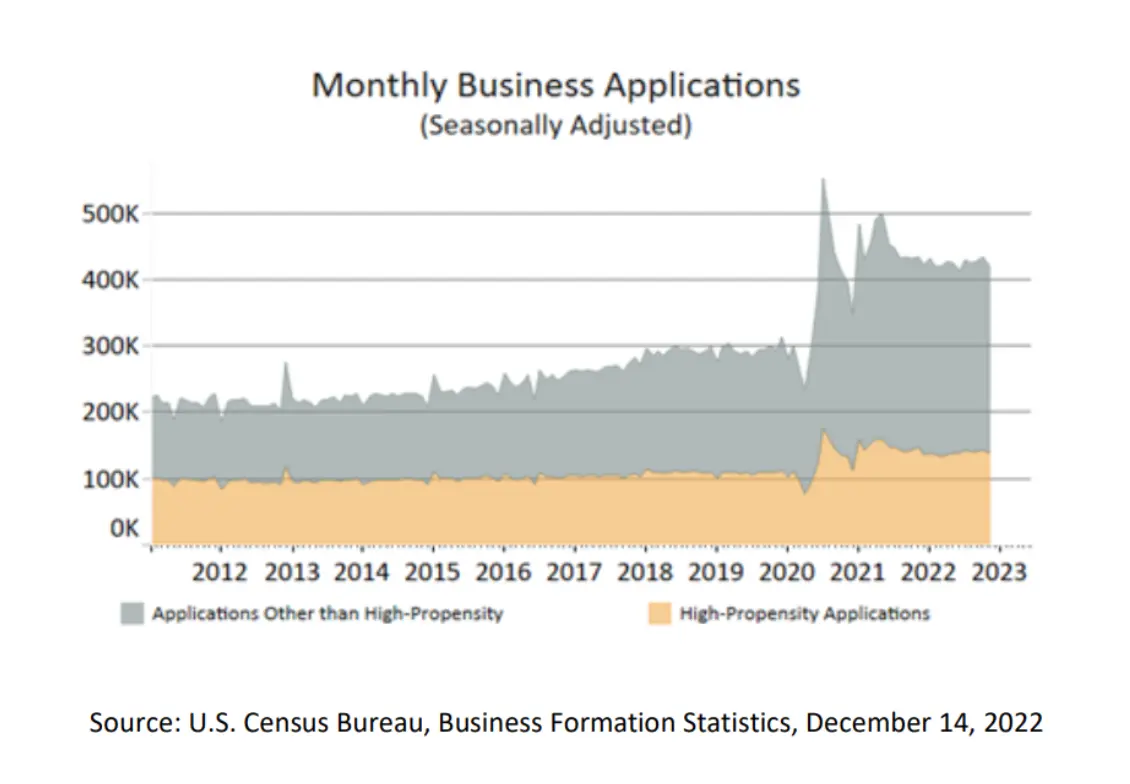
Image via US Census Bureau
It's possible only by foreseeing growth trends and adopting the right business scaling techniques to help you generate more revenue without excessive investment.
Even with less-than-favorable economic conditions forecasted for 2023, small business owners have a positive outlook. 66% of business owners expect their revenue to increase in the coming year.
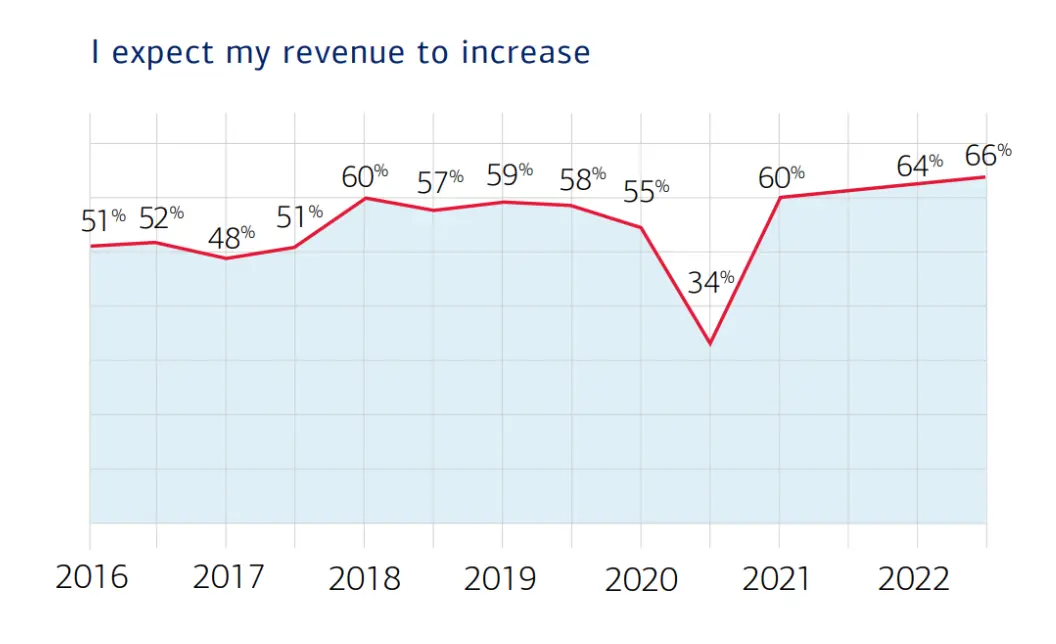
Image via Bank of America
The same report says that the small business expansion plans have significantly increased, as 52% of owners plan to expand their businesses in the next 12 months.
You also need to scale up your marketing efforts, refine your products, and determine how to convert customers into buyers for sustainable revenue generation.
Are you ready to experience exponential growth for your startup this year?
7 Scaling Techniques for Small Business Owners
While business growth refers to growing your revenue by adding resources, scaling your business requires thoughtful planning to boost your revenue with a limited increase in expenses. Here you need to apply all your business school learnings. Let’s look more deeply into each business scaling technique, shall we?
1. Stay updated about market demand
The market is quite dynamic for small business owners, and if you want to stay on top of your game, you need to be well aware of the trends and market demand.
By analyzing data collected from database platforms like ZoomInfo, you can determine the steps to maximize overall profitability.
Staying up to date with the latest market trends and demand can help you spot weak points in your business strategy and adopt the right tactics to plug those gaps, reach more customers, and boost your revenue.
2. Establish a clear roadmap
More often than not, business owners may perceive a business roadmap as simple as goal setting.
The roadmap you create for your business needs to be more detailed and should outline specific steps for scaling up.
This business roadmap template shows how to plan moves for each department, each quarter, to scale your business sustainably.
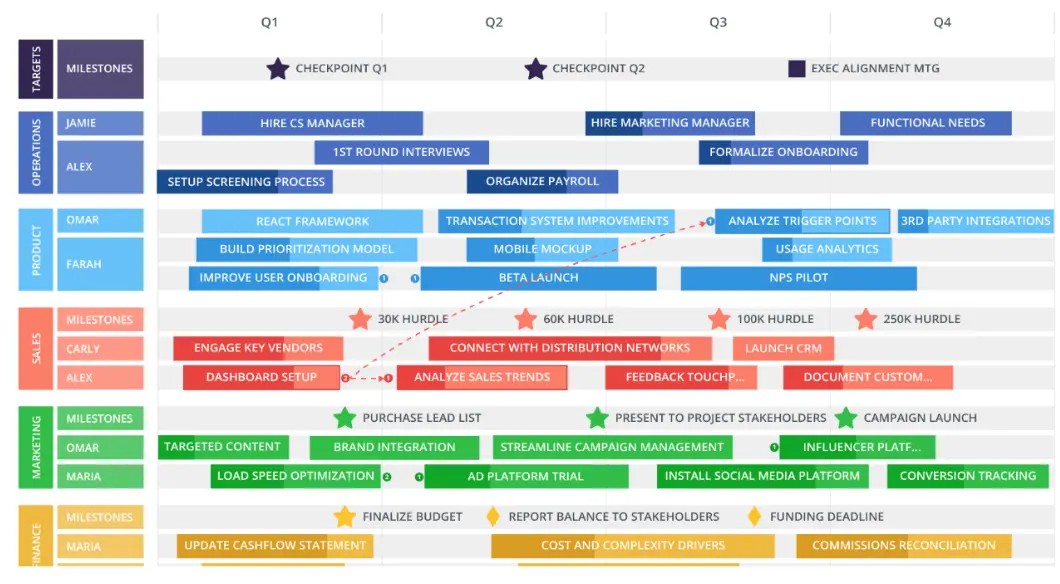
Image via Roadmunk
A few elements to include in your roadmap are:
- Realistic goals for each department
- Major changes to implement and the team members responsible for them
- The resources required and the best way to source them
- The timelines and deadlines for each phase
As one of the fundamental business scaling techniques, a company roadmap must focus on optimizing your strengths and USPs to help you grow.
3. Refine your product line
Today, small businesses are driven by innovation. But constant innovation may not be one of the best business scaling techniques for small businesses, as it can be costly.
Instead, small business owners can adopt a proven growth strategy, such as the Ansoff Matrix. You should focus on refining your existing product line to make it more compelling and better penetrate the existing target market.
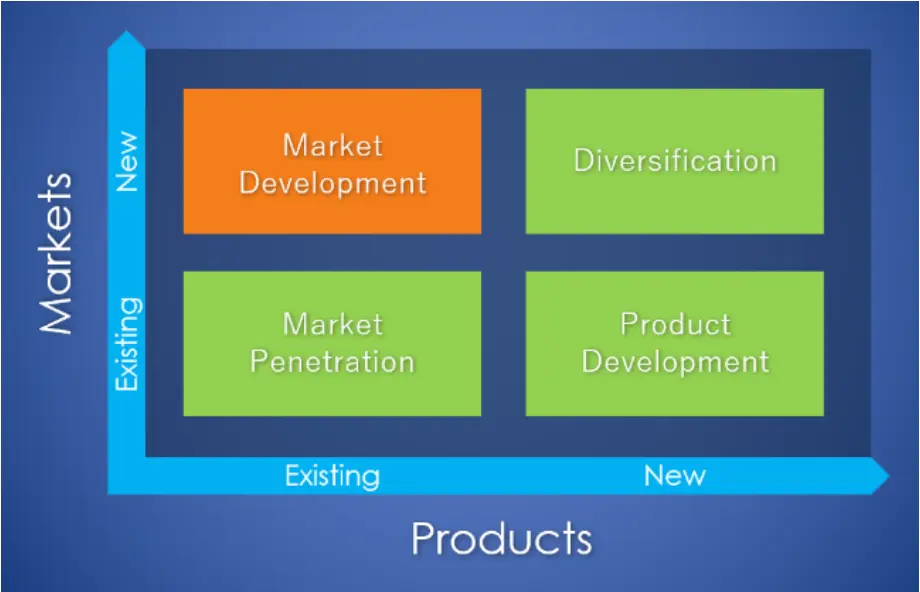
Image via Slide Hunter
While scaling your business, focus on your core offerings and make them your USP. Your conversion rates will soar when your solutions best meet your customers' challenges.
You should also strengthen your supply chain and customer service to be the best in your niche.
According to the above matrix, you can explore other markets with your successful products and expand your product line to diversify your offerings.
4. Adopt automation
One of the best business scaling techniques to empower your small business to compete with the more prominent players is the strategic adoption of automation.
Businesses, big and small, can benefit from workflow automation in multiple ways, especially in marketing. Below are the benefits companies are already enjoying with marketing automation.
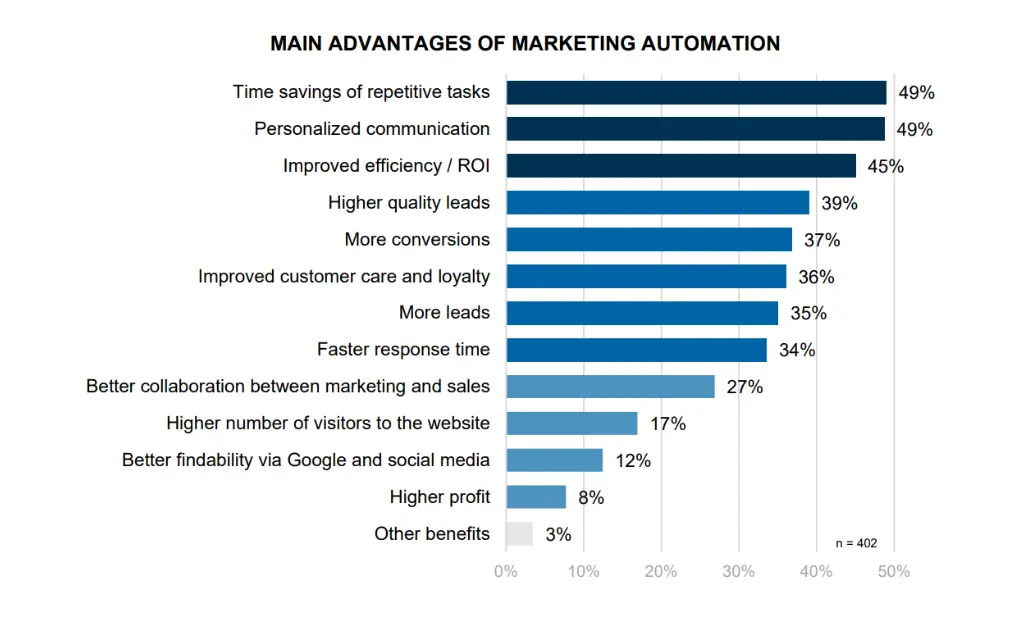
Image via Pedalix
These benefits can help you scale your business as you’ll be able to accomplish a lot more for a minimal cost.
Right from project management to ecommerce marketing, social media marketing, customer service support, and several other manual tasks — you can automate it all to improve your team's productivity.
You can invest in different SaaS tools for automation to leverage the benefits of technology and scale your business like never before.
One example is LinkedIn automation software, which lets you automate the entire process from sending contact requests to drip message campaigns.
5. Hire and retain the right talent
If you want to scale your business sustainably, you should be able to hire through RPO or in-house recruitment teams and retain your best talent. After all, a good team is the only way to boost your business.
However, managing a larger team brings administrative complexity that can slow down growth. To scale sustainably, many SMBs leverage HR outsourcing.
Partners like Penbrothers help companies navigate the nuances of HRO, PEO, and EOR models, ensuring that payroll, compliance, and benefits are handled professionally while leadership focuses on strategy.
While building a diverse team, you should adopt a two-pronged approach. First, you should focus on training and diversifying the competencies of your existing employees.
Next, use an employee vacation calendar to efficiently manage time-off requests and ensure adequate coverage for ongoing projects.
A LinkedIn report says that only 26% of organizations challenge their employees to learn new skills.

Image via LinkedIn
Also, hire talent with expertise in areas where you want to scale your business. Always look for professionals with complementary competencies who resonate best with your business values.
Go the extra mile to retain your loyal employees, as they can significantly help implement your business-scaling techniques.
6. Prioritize customer experience
Customers are your biggest assets, and customer experience management can make or break your business.
Case in point—while 72% of customers shared their positive experience with six or more people, 89% of consumers switched to a competitor following poor CX.

Image via Zippia
In other words, to scale your business, you must deliver exceptional customer experience at every stage of the customer life cycle.
Personalized recommendations, offers, and prompt customer support can go a long way toward creating loyal customers and improving customer lifetime value.
Leverage the power of word of mouth to make your business more credible and trustworthy.
Showcase positive customer reviews and feedback on social media and add Google reviews to your website to win over potential customers and generate more revenue for your business.
7. Invest in fundamental marketing tools
Investing in marketing techniques such as SEO, content, social media, and PPC is necessary for businesses. They must build robust SEO, content, and social media strategies to boost brand awareness in digital marketplaces.
Also, they need to invest in digital marketing tools such as Google index checker to monitor and analyze the effectiveness of these digital strategies.
Are You Ready to Adopt These Business Scaling Techniques?
Business scaling is a comprehensive, sustainable growth approach requiring detailed planning and execution.
The business scaling techniques you adopt should help you offer better products and CX and build a strong and memorable brand.
Take note of the business-scaling techniques discussed above and incorporate them into your growth strategy in line with your broader business goals.
With the right approach and execution, your business can scale sustainably amid an economic slowdown.

Author Bio
Gaurav Sharma is the founder and CEO of Attrock, a results-driven digital marketing company. He grew an agency from five to seven-figure revenue in just two years | 10X leads | 2.8X conversions | 300K organic monthly traffic.
He also contributes to top publications like HuffPost, Adweek, Business 2 Community, TechCrunch, and more. You can subscribe to his social accounts: Twitter, LinkedIn, Pinterest, and Instagram.


